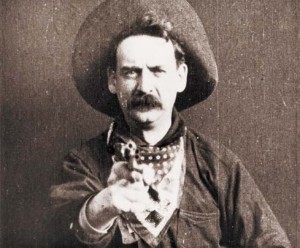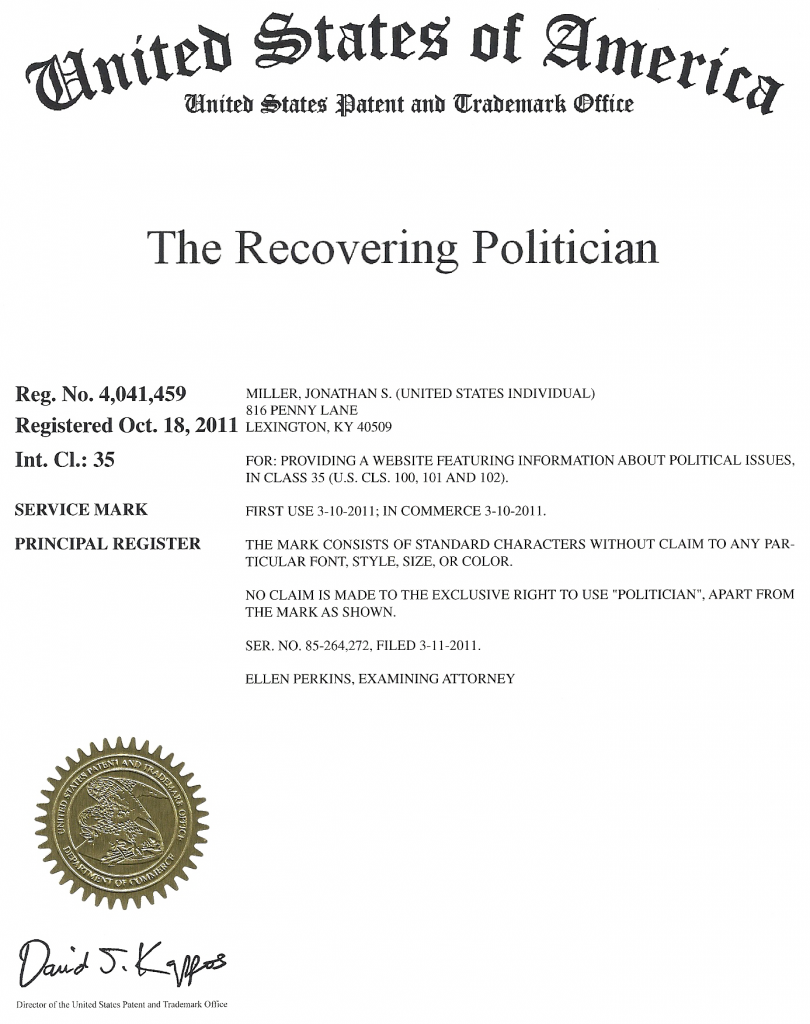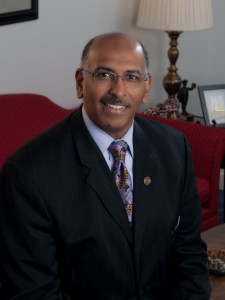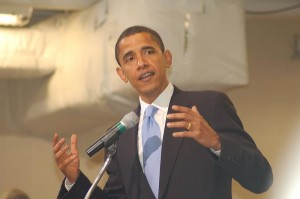
Click the picture above to read Jeff’s critically-acclaimed piece about his path from rising political star to federal prisoner to hopeful redemption.
Last month, I moved cross-country from St. Louis to the New York City area. The other night, a colleague invited me to a party. It was teeming with Brooklyn hipster-intellectual types – young college profs, Times reporters, social entrepreneurs, assorted do-gooders.
The only person I knew was the host, but he kindly introduced me around as a New School prof teaching in their public policy graduate program (yawn) who once ran for Congress (yawn) and served in the Missouri Senate (slightly more polite yawn). They were Brooklyn-ites, after all.
Midwestern-ness emanated from me like stink from a skunk. I could feel it when I used the word “wife” instead of partner, the self-consciously gender-neutral term they used when referring to spouses or long-time companions.

Email Jeff at jeffsmith2006@gmail.com for press inquiries or to be notified for book/speaking events
Then the host told them where I spent 2010, and their curiosity was insatiable.
Was it white-collar? (Maybe 5%.) Was it violent? (Occasionally.) Did you get in fights? (A couple.) Did you get hurt? (Yes.) What were the people like? (More interesting and less pretentious than you.)
They reached for the gin, hoping the liquid courage would help them ask the question they were dying to ask. But it didn’t. Instead, one stammered, “Did you get…, uh…was there a lot of sex?”
***

Click above to connect with Jeff on Twitter
A few weeks after you get to federal prison, you go through orientation. The first thing they do is take you down into the visiting room to show you a mandatory sexual assault video featuring a 40-ish white guy warning you not to eat the Snickers bar that may be waiting on your bed when you return to your cell. (He ate his, unwittingly signaling the predator who left it for him that he was ready and willing.) All the guys in the visiting room laughed. So did I. But at 117 lbs, I reminded myself not to accept any sweets during my tenure, lest I “get my windows tinted,” in the parlance of Federal Correctional Institution, Manchester.
As you might imagine, things can get pretty nasty when several hundred guys are confined in a small area without the benefit of female interaction, other than a pair of (arguably) female prison administrators. Outside muscle-building substances, pornography was perhaps the most prized possession on the compound. Its value hinged on a woman’s measurements, which were, up to a point, proportional to the price of the material. Depending on how brazenly a woman displayed her ass(ets), one magazine could fetch up to $200 in stamps, due to the recurring revenue stream available by copying pictures and selling them individually and/or renting the magazine (after laminating it in plastic). The purveyors of such contraband, who could become quite wealthy by prison standards, were dubbed “entrepre-niggaz.”

My first cellie, who favored a young Morgan Freeman, was a frequent customer. One day about a week after I moved in with him he told me was going back to the bathroom to “get married to (his) baby Coco,” his slang for masturbation. He was partial to magazines featuring the impossibly curvaceous (39-23-40) bleach blonde who recently burst onto the reality television scene as the wife of rapper Ice-T. My cellie would return from the bathroom fifteen minutes later and announce, “Now I need a muthafuckin cigarette!”
He was unusually open about his sexual proclivities, which probably should not have surprised given that he had been locked up for most of the previous 20 years. As he liked to tell me, “I got more time in this place on the toilet than you got time.”
One day I was on my way down to the visiting room to see my now-wife and he approached me with a business proposition. “Ten stamps if you can get me a lil’ Teresa on here,” he said, thrusting a tissue into my hand and inhaling theatrically. “Mmmm-mmmm, I bet she do smell like fresh strawberries!”
He was astonished when I declined his offer. “Cellie, you ain’t even got to DO shit. Easiest ten stamps you ever make. And I bet she love that shit, knowin’ I be gettin’ off on her.”
Um, no, Cellie, actually, I don’t think she would love knowing that. But thanks for thinking of her.
I would not have been surprised had others accepted his offer. First, some inmates were desperate for stamps. One was nicknamed Five-Stamper; word was, there was nothing he wouldn’t do for five stamps. And visiting room shenanigans were not uncommon. For instance, one newbie got sent up the road to a higher-security facility for manually pleasuring his girlfriend in the visiting room one day as I sat nearby.
***
When it came to women, there was really no limit to inmates’ imagination. The quickest way to get into a fight was by switching the channel during a women’s softball game or track meet, events that are watched with as much whooping and hollering as homemade porn at a frat house.
They assumed I was sleeping with any woman who visited me, regardless of the woman’s age or attractiveness. Some of my work colleagues at the prison warehouse even fantasized about our boss, a squat woman with the build of a high school wrestler, the demeanor of a drill sergeant, and the sensuality of an amoeba. “Lemme catch Miss Horton in the club once I’m sprung, bihhh,” said my friend ‘Ville as he pumped his hips.

My cellie often told stories of “gunslingers” he had met during his time. There was one female guard who occasionally patrolled, and one day while she was patrolling the show hall, he contemplated whether it would be worth it to “gun her down.”
“You crazy?” I asked. “You’re almost to the door!” He’d been locked up off and on for 20 years, but only had a year left. “What she do to you anyway?”
He spoke to me slowly, as if I were a child. “Prance around in front of me with that fat ass, is what she did. Fuck they gon’ do, throw me in the hole?”
“Cellie, they’ll give you life!” I exclaimed.
He scrunched up his face. “How they gon give me life fo’ gettin’ off on some bitch?”
Only then did he realize that I didn’t understand his slang. He explained that “gunslingers” were men who ran strings from their toes up their leg to lubed up toilet paper tubes fitted around their penises. To “gun her down” would’ve been to wire himself and go to the chow hall at mealtime, position himself at a table near her post, and toe-tap away until he…well, I won’t extend the gun metaphor any further.
* * *
Most inmates at FCI Manchester were non-violent (though as a warehouse buddy of mine liked to brag, that didn’t mean they hadn’t shot people – just that they didn’t get caught). They were crack or meth dealers at their last, lowest-security-level stop on a multi-facility national tour, courtesy of the U.S. of A. FCI Manchester was usually pretty calm. Sure, we had lockdowns when they found steroids or dangerous contraband. Sometimes there were fights; guys might attack each another with slocks (padlocks wrapped in socks) or homemade shanks, other times there were just were normal fistfights. And since most people were close to the door – you couldn’t be in a minimum-security facility unless you had less than ten years to go – most inmates avoided beefs, lest they be shipped to the hole.
But one act of violence I did not see was prison rape. Actually, I saw prison love.
* * *
 If felons were cars, Porkchop was as standard-issue as a Ford Taurus. Like several others (Popcorn, Peanut, Hot Dog, etc), he was named after his favorite food. He was 6’2” and husky, with close-cropped dark hair, a goatee, and more tattoos than teeth. In and out of state and federal prison for nearly 20 year, his offense ranged from selling meth to kiting checks to stealing cars. He spent every waking hour smoking, on the weight pile, or watching TV. A habitual offender, the law called him. To us he was just a regular thug, always trying to get over for a cigarette, a beef jerky, or a pack of mackerel, the $1 protein source of choice at FCI Manchester.
If felons were cars, Porkchop was as standard-issue as a Ford Taurus. Like several others (Popcorn, Peanut, Hot Dog, etc), he was named after his favorite food. He was 6’2” and husky, with close-cropped dark hair, a goatee, and more tattoos than teeth. In and out of state and federal prison for nearly 20 year, his offense ranged from selling meth to kiting checks to stealing cars. He spent every waking hour smoking, on the weight pile, or watching TV. A habitual offender, the law called him. To us he was just a regular thug, always trying to get over for a cigarette, a beef jerky, or a pack of mackerel, the $1 protein source of choice at FCI Manchester.
The minute J.T. came on to the compound, Porkchop had his eye on him. Now, J.T. wasn’t flamboyant – not one of the dudes who wore makeup (grape Kool-Aid on the eyes, cherry on the lips, Tang on the cheeks). He wasn’t the type we got warned about by the gruff veteran staffer during orientation: “You might wanna move now if you got a single and go move in with somebody you know,” he’d warned. “You don’t wanna get a cellie with boobs.”
J.T. was just a regular drug offender, nondescript, mostly kept to himself other than the occasional poker game. But Porkchop took a shine to him, pursuing him quietly but relentlessly. First it was bringing J.T. into his “car”, the small group with whom he worked out. Then it was showing him how to make a nacho, a unique prison dish made in a bowl with rice, chips, beef jerky, cheese, beans, onions, peppers, most smuggled out from the warehouse. Finally, it was ironing J.T.’s greens before Visiting Hours on Sunday.
And then one day, as I walked down to the bathroom late one night, I saw it. They were in bed together, snuggling and talking quietly. I saw a newbie snicker, and then a prison old-head ice-grilled him. “It ain’t none o’ yo muthafuckin bidness,” said the look, and the newbie scurried back to his cell. After that, no one said a word about it. And it remained that way every night for the next few months until I left.
* * *
I hadn’t thought about Porkchop and J.T. for over a year, until the other night, after that Brooklyn party. Those incomparably enlightened and erudite hipsters, themselves mostly unattached and plotting their next conquests (“So, she’s not looking for anything too serious, right?”), were palpably fascinated with the sexualized brutality of prison rape.
I wonder if any of them will ever experience the type of intimacy that J.T. and Porkchop shared.
===================
Editor’s Note: To learn more about Jeff Smith’s fascinating path from rising political star to federal prisoner to hopeful redemption, read his critically acclaimed piece, “The Long and Winding Journey to My Second Act.”
==================
For media requests and individuals interested in contacting Jeff to be made aware of future book events and speaking engagements, please email jeffsmith2006@gmail.com.
==================
If you’ve enjoyed this piece, you may also like to read our most popular pieces, all written by former politicians gone good:
Or, if you need a good laugh, our most hilarious pieces:
And don’t miss this one from our “Recovering College Republican”:





















